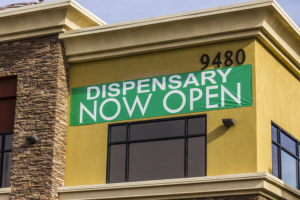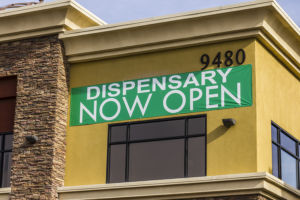 The establishment of regulated cannabis retailers is associated with a decrease in localized criminal activity, according to data published in the journal Regional Science and Urban Economics.
The establishment of regulated cannabis retailers is associated with a decrease in localized criminal activity, according to data published in the journal Regional Science and Urban Economics.
A pair of senior economists affiliated with the Federal Reserve Bank of Philadelphia assessed the local effects of retail dispensaries on neighborhood crime in Denver, Colorado. They determined, “[A]n additional dispensary in a neighborhood leads to a reduction of 17 crimes per month per 10,000 residents, which corresponds to roughly a 19 percent decline relative to the average crime rate over the sample period.” The majority of crime reduction is due to a decrease in non-violent criminal activity.
They concluded: “Overall, our results suggest that dispensaries cause an overall reduction in crime in neighborhoods, with no evidence of spillovers to surrounding neighborhoods. … Our results are consistent with theories that predict that marijuana legalization will displace illicit criminal organizations and decrease crime through changes in security behaviors or substitution toward more harmful substances. … Lastly, there is no evidence that increased marijuana use itself results in additional crime.”
The authors’ findings are consistent with those of prior studies concluding that regulating cannabis sales is not associated with upticks in criminal activity and may even play a role in preventing certain crimes, like larceny.
The abstract of the study, “Not in my backyard? Not so fast. The effect of marijuana legalization on neighborhood crime,” is online here.


